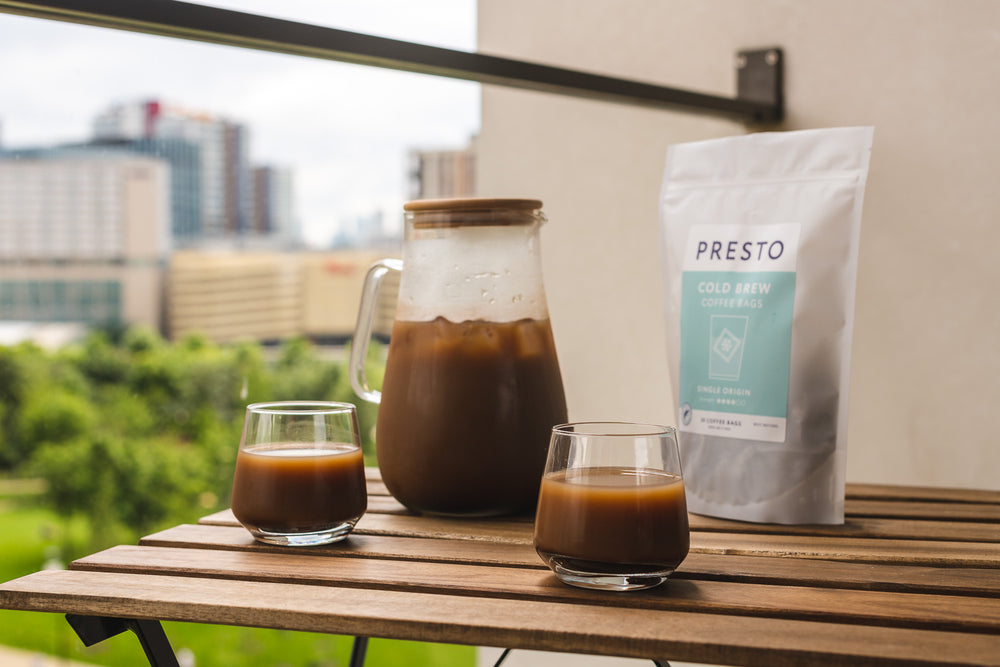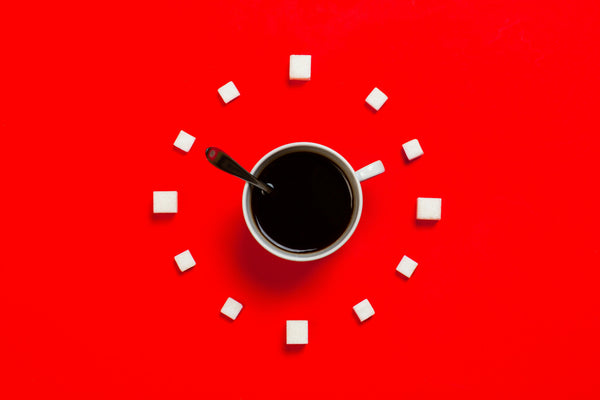What is cold brew coffee?
The technique of steeping coffee grinds at room temperature or cold water for an extended period of time is known as cold brew coffee. This procedure yields a very different result than simply icing a hot cup of coffee. The lack of heat prevents many of the soluble’s in the coffee from entirely dissolving, resulting in a coffee with significantly reduced acidity, increased smoothness, increased sweetness, and little to no bitterness. To give the water more time to remove those solubles from the coffee grounds, a longer brewing time and a higher coffee to water ratio are required.
At Presto, we've recently launched our cold brew coffee bags - delicious and convenient for those looking for a refreshing cold brew on the go with minimum fuss. Simply pop a bag in your glass, brew for a minimum of five minutes (overnight if you have the time!), add ice and you're all set.
Coarsely grind the coffee
If you want a good cold brew coffee experience then while you are cold brewing, buy coarse grounds or grind them coarsely at home. Make sure that you grind it properly its texture should be like that of sugar.
Combine the coffee and the water
Brewing cold brew is one of the hardest things to do but with Filtron or Toddy brewer, it makes the job less hectic. Simply add the coffee and water in the specified ratio, stir well, and wait.
Steep overnight
Place coffee grounds in the bottom of a 2-quart mason jar or pitcher. Pour cold water on top and use a spoon to stir and completely combine. Screw lid on top of the jar or cover with plastic wrap and chill cold brew overnight or for at least 12 hours.
From 12 hours to 24 hours this the best and recommended time for steeping.
Strain the coffee
Place the coffee filter in a tiny fine-mesh strainer or drape a cloth over the sieve to strain. Pour the concentrate through it while holding it over a pitcher or liquid measuring cup. That concludes our discussion.
The most popular method of straining is using a cheesecloth but there are other things that can be used like thin paper coffee filters or vintage handkerchiefs.
Store the coffee
For you to fully appreciate the taste of your cold brew, you need to keep it in the fridge for 7 days.
Don't worry if your coffee maker won't fit in your refrigerator. When the coffee is done brewing, immediately pour it into smaller sealed containers and store them in the refrigerator to keep it fresh.
Serve the coffee
Depending on your preferences, cold-brewed coffee can be served iced or hot. You make the coffee the same way, you have it with some ice or heat it in the microwave for a hot cup.
Why Should You Cold Brew Your Coffee?
Did you know caffeine, phenolic chemicals, magnesium, trigonelline, quinines, and lignans are all found in cold brew coffee, and they may help to minimize the risk of heart disease? These boost insulin sensitivity, blood sugar stabilization, and blood pressure reduction.
Fun Facts about Cold Brew Coffee
Cold brew can be strong.
Many factors influence this, including the type of beans used, steeping period, and dilution. The dilution is the most straightforward aspect to manage. The cold brew concentrate is very caffeinated, so don't drink it directly!
Cold brew is less acidic.
Cold brew coffee may not irritate your stomach as much as standard drip coffee or espresso. The only way to find out is to give it a shot, and if you make it yourself, you'll have complete leverage over the finished result.
You can heat up cold brew and drink it hot.
You can make hot brewed coffee from a cold brew, you simply heat it up and it's ready. The best part is the flavour remains the same.
Cold brew takes longer to make than drip coffee.
Because the water is cold, it must be steeped for 12 to 18 hours to absorb the colour, flavour, and caffeine of the coffee. The cold extraction procedure extracts fewer bitter chemicals from the coffee, resulting in a sweeter and smoother cup.
Coarsely-ground coffee makes the best cold brew.
What if you don't have a coffee grinder? That shouldn't be a problem. Simply ground your coffee in the supermarket's large coffee grinder machine, with the coarse/French press setting selected. If you don't have a scale and want to get a more precise weight measurement, You can ask for help at the store you are grinding for approximate amounts of ground coffee to use.
Use any coffee variety you enjoy to make cold brew.
You do not need to be strict, be free to try out anything you want, so for this, any kind of coffee will do, and you'll find that steeping it in cold water rather than hot water makes it taste less bitter. Comparing a glass of cold brew coffee to a cup of hot coffee of the same sort would be interesting.
Tips for Making Cold Brew Coffee
Make sure your beans are coarsely ground
When making cold brews, do not use store-bought pre-ground coffee! You'll need coarsely ground coffee, as the grains are the proper size for maximum extraction without bitterness. The results are a delicious cold brew coffee you will definitely enjoy.
Use filtered water, if possible
In activities like soup, coffee, and bread baking, the quality of the water makes a significant difference. If you like, you can use bottled water, or you can buy an inexpensive filter pitcher and prepare cold brew coffee on a regular basis without having to buy anything other than beans.
Steep for at least 12 hours
Following that, you can experiment with the flavour. If you want it stronger, leave it to steep for up to 24 hours. However, most coffee lovers prefer the flavour after 12-15 hours.
Chill your cold brew with coffee ice cubes
While you enjoy your cup of coffee, even as the ice cubes begin to melt, they keep your coffee robust and don't dilute the flavour. Filling your glass with coffee ice cubes will keep your favourite take on iced coffee rich and full-bodied if you don't swallow your iced coffee in seconds.
Keep it cold
This is ideal as you'll fully enjoy your coffee better when it is cold.
Great coffees to try cold brew with
- Presto coffee roasters
- Lifeboost organic light roast
- Coffee bros. Cold-brew coffee
- Stone street coffee cold brew: Reserved Columbian coffee
- Tiny foot coffee organic cold press elixir
The Benefits of Cold Brew Coffee
May boost your metabolism
The process by which your body converts food into energy is known as metabolism. The more calories you burn at rest, the greater your metabolic rate is. Caffeine is present in cold brew coffee, just as it is in hot coffee, and it has been shown to improve your resting metabolic rate by up to 11%. Caffeine appears to increase the rate at which your body burns fat, which appears to increase metabolic rate. C
Caffeine consumption resulted in a 13 per cent increase in calorie burning and a 2-fold increase in fat burning in 8-man research, far more than the benefits of a placebo or beta-blocker (this helps with blood pressure and circulation).
Coldbrew coffee's caffeine can help you burn more calories even when you're not moving. This could make losing or keeping weight simpler.
May lift your mood
Cold brew coffee contains caffeine, which may help you relax. Caffeine has been demonstrated to improve mood, particularly in people who find it hard to sleep. Coffee drinkers had reduced rates of depression, according to a study of research involving more than 370,000 participants. In fact, the risk of depression decreased by 8% for every cup of coffee drunk daily.
Caffeine may even be used as a nutritional supplement to help older persons improve their mood and cognitive function, according to some research. Taking 1.4 mg of caffeine per pound (3 mg per kg) of body weight increased mood by 17% in a trial of 12 individuals aged 6374. For an average-sized individual, this amount of caffeine is roughly comparable to two cups of coffee. Caffeine also enhanced their capacity to react to an object approaching them, implying that it improves focus and attention.
Cold brew coffee has been shown to improve mood, lower depression risk, and improve cognitive performance.
May lower your risk of heart attack
Coronary artery disease, heart attack, and stroke are just a few of the disorders that can affect your heart. It is the world's leading cause of death.
Caffeine, phenolic chemicals, magnesium, trigonelline, quinides, and lignans are all found in cold brew coffee and may help to lower the risk of heart disease. These improve insulin sensitivity, blood sugar control, and blood pressure.
Chlorogenic acids (CGAs) and diterpenes, which function as antioxidants and anti-inflammatory agents, are also included in the drink. When compared to persons who don't drink coffee, drinking 35 cups (1525 ounces or 450750 ml) every day can reduce your risk of heart disease by up to 15%. Though this effect has not been examined in those who use more than 600 mg of caffeine per day, the equivalent of around 6 cups of coffee, there is no evidence that drinking more than 35 cups per day increases heart disease risk.
People with uncontrolled high blood pressure, on the other hand, should avoid drinking caffeine on a daily basis because it may raise their blood pressure even higher.
Drinking cold brew coffee on a regular basis may help your heart. If you have uncontrolled high blood pressure, however, you should limit or eliminate caffeine.
May lower your risk of type 2 diabetes
Type 2 diabetes is a long-term disorder characterized by elevated blood sugar levels. It can lead to a variety of serious health consequences if left unchecked.
Cold brew coffee may help you from contracting this illness. Drinking at least 46 cups of coffee per day has been linked to a reduced risk of type 2 diabetes.
These advantages could be attributed to chlorogenic acids, which are potent antioxidants found in coffee.
Gut peptides, which are hormones in your digestive system that control and slow digestion, keeping your blood sugar constant, may be regulated by cold brew coffee.
A study of more than 36,900 persons aged 45 to 74 found that those who drank at least four cups of coffee per day had a 30% lower risk of type 2 diabetes compared to those who doesn't consume that much coffee.
According to a study of three large studies involving over 1 million participants, those who increased their coffee consumption over four years had an 11 per cent lower risk of type 2 diabetes, compared to a 17 per cent greater risk for those who dropped their coffee consumption by more than one cup per day.
Cold brew coffee may help you maintain a steady blood sugar level and minimize your risk of type 2 diabetes if you consume it on a regular basis.
May reduce your risk of Parkinson's and Alzheimer's disease
Cold brew coffee may assist your brain in additional ways besides enhancing your attentiveness and mood.
Caffeine stimulates the neurological system and may have an impact on how the brain works.
According to a recent study, drinking coffee can help protect your brain from age-related disorders.
Alzheimer's and Parkinson's illnesses are both neurodegenerative diseases, meaning they are caused by the death of brain cells over time. Both disorders can cause dementia, a mental health condition that makes daily tasks harder.
Alzheimer's disease is characterized by severe memory loss, whereas Parkinson's disease is characterized by tremors and rigidity.
People who consumed 35 cups of coffee per day during their middle years had a 65 per cent decreased risk of acquiring dementia and Alzheimer's disease later in life, according to one observational study.
Coffee consumers have a decreased risk of Parkinson's disease, according to another observational study. Men who drink more than four cups of coffee every day had a five-fold lower risk of developing this disease.
Several chemicals found in coffee, including phenylindanes, Harman and nonhuman compounds, appear to protect against Alzheimer's and Parkinson's disease.
Remember that decaffeinated coffee does not appear to provide the same level of protection as caffeinated coffee.
Phenylindanes, as well as lesser levels of nonharman and harman compounds, are found in cold brew coffee. These can aid in the prevention of age-related illnesses in the brain.
It maybe easier on your stomach than hot coffee
Because coffee is an acidic beverage that might cause acid reflux, many people avoid it.
Acid reflux is a disorder in which stomach acid runs back into your esophagus, irritating it.
Other problems, such as indigestion and heartburn, are sometimes blamed on coffee's acidity.
The pH scale ranges from 0 to 14, with 7 indicating neutral, lower numbers indicating acidity, and higher ones indicating alkalinity.
Acidity levels in cold brew and hot coffee are generally similar, hovering around 56 on the pH scale, though this varies depending on the brew.
Despite this, some studies have discovered that cold brew is somewhat less acidic, which means it may cause less gastrointestinal irritation.
The presence of crude polysaccharides in this beverage may also help it to be less unpleasant than hot coffee.
The digestive system's immunity is boosted by these carbs or chains of sugar molecules. This may help to alleviate stomach irritation and the unpleasant effects of coffee's acidity.
Although cold brew coffee is just slightly less acidic than hot coffee, it may include ingredients that may help protect your stomach from acidity. As a result, compared to hot coffee, it may induce fewer digestive and acid reflux problems.
It May help you live longer
Cold brew coffee may lower your overall mortality risk this also goes for those deaths that may be caused by diseases they are reduced.
The more coffee people drank, the lower their risk of death from heart disease, lung disease, stroke, injuries, accidents, diabetes, and infections, according to long-term research of 229,119 men and 173,141 women aged 5071.
Coffee's strong antioxidant content could be one reason for this link.
Antioxidants are molecules that aid in the prevention of cell damage, which can lead to chronic ailments such as heart disease, type 2 diabetes, and cancer. These disorders can drastically shorten your life expectancy.
Polyphenols, hydroxycinnamates, and chlorogenic acid are all potent antioxidants found in coffee.
Despite the fact that hot coffee contains more overall antioxidants than cold brew types, the latter contains several extremely powerful antioxidants, such as caffeoylquinic acid (CQA).
Although there are fewer overall antioxidants in cold brew coffee than in hot coffee, it is full of molecules with strong antioxidant activity. Antioxidants aid in the prevention of diseases that can shorten your life expectancy.
Similar caffeine content to hot coffee
Cold brew coffee is prepared as a concentrate, which is then diluted with water in a 1:1 ratio.
On its alone, the concentration is extremely potent. In fact, a cup of it contains roughly 200 milligrams of caffeine when consumed undiluted.
However, diluting the concentrate, as is typical, lowers the caffeine concentration of the finished product, making it more comparable to normal coffee.
Although caffeine level varies based on the brewing method, the difference in caffeine content between hot and cold brew coffee is negligible.
The caffeine content of a standard cup of hot coffee is roughly 95 mg, but a typical cold brew is around 100 mg.
Caffeine levels in cold brew and hot coffee are similar. If you drank cold brew coffee concentrate straight up without diluting it, you'd get nearly twice as much caffeine.
Very easy to make
Cold brew coffee is simple to produce at home. Presto's Brazilian Blend Coffee Beans are perfect for home roasting and grinding. So if you love to make your own coffee, this is the best pack you need to get.
To begin, if you happen to have your own coffee beans, coarsely grind whole roasted coffee beans that you can find at Presto Coffee, locally or online.
In a big jar, combine 8 ounces (226 grams) of coffee grinds and 2 cups (480 ml) of water. Refrigerate the coffee for 1224 hours after covering it in the jar. Pour the steeped coffee through cheesecloth into another container using a fine-mesh strainer.
Save the solids that gather on the cheesecloth for further creative uses or discard them. Your cold brew coffee concentrate is the liquid that remains.
Refrigerate your concentrate for up to two weeks after covering it with an airtight lid. Add
1/2 cup (120 ml) cold water to 1/2 cup (120 ml) cold brew coffee concentrate when you're ready to consume it. If desired, serve over ice with a dollop of cream.
Cold brew coffee is fairly easy to make at home, albeit it takes substantially longer to prepare than hot coffee. Combine coarsely ground coffee beans and cold water, soak for 1224 hours, filter, and dilute the concentrate 1:1 with water.
What happens if you steep cold brew too long?
The amount of time it takes for the cold brew to steep is determined by a number of factors. However, the general rule or recommended time is that it should be steeped for 12 to 24 hours. Now is the time to realize that there is no right or wrong way to do things. Instead, the length of time you steep a cold brew is totally up to you.
If you soaked or steep your cold brew for more than 24 hours (which is a long time since the recommended time is between the space of 15 24 hours) the Whole Bean Coffee will most likely have been over-extracted. Your cold brew will be bitter as a result of this.
It's unnecessary to steep your cold brew for more than 24 hours. As a result, the maximum is usually regarded to be 24 hours. So it is important to take note of the time you are spending when steeping your cold brew coffee. However, there is no fixed way of doing this so depending on your process, you may be able to over-extract coffee even more quickly!
Is cold brew expensive?
Typically, yes, cold brew coffee is a little more expensive but the price comes with the whole process of making it. However, with our brand new cold brew coffee bags, you can brew at home for less. Our 30 pack of coffee bags cost just £9.99! The bulk of the time, cold brew coffee is brewed by hand. Cold brew coffee makers are available, but they can be costly and only create little amounts at a time. Cold brew, on the other hand, takes anywhere from 12 to 18 hours to make and necessitates more attention and effort than any other style of coffee.
If you have any further questions on how to make cold brew coffee just get in touch.
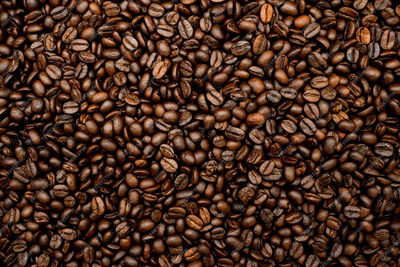
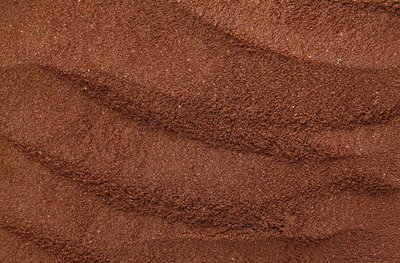
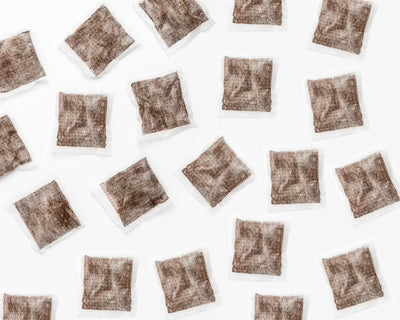
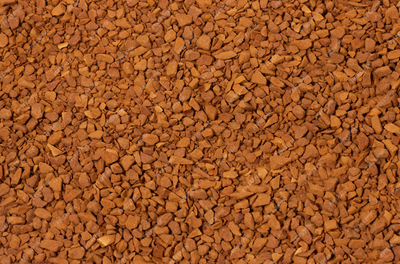


 Log in
Log in